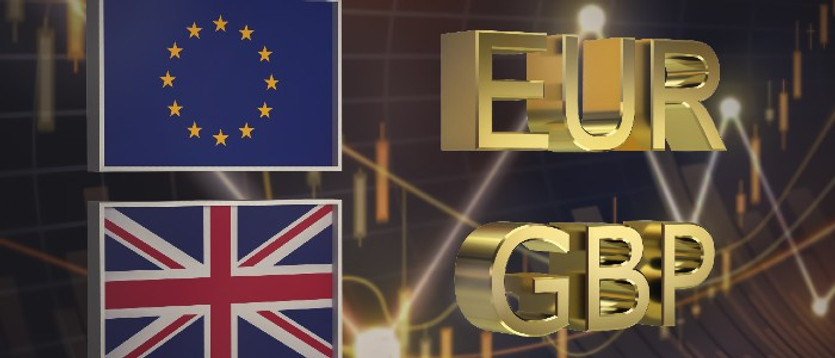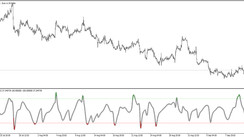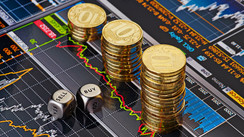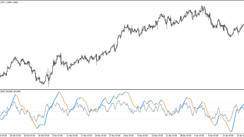Thursday turned out to be a very interesting and volatile trading day, rich in important economic events. No sooner had the conversations subsided after the yesterday’s meeting of the FRS, at which its leaders announced the acceleration of the pace of curtailment of the quantitative easing program, as a new avalanche of information for thought fell on traders yesterday.
Meetings of three largest central banks took place yesterday: the National Bank of Switzerland, the Bank of England, and the ECB. Most of all, perhaps, market participants were surprised by the Bank of England. The pound strengthened sharply yesterday after the British central bank executives (8 votes to 1) decided to raise the key interest rate to 0.25% (from 0.1%), appealing to high inflation rates (in November, consumer inflation reached the level 5.1% y / y after rising 4.2% in October).
Meanwhile, economists believe that the growth of the British pound after yesterday's meeting of the Bank of England may be short-lived: inflation in the UK is likely to continue to accelerate, while the economy will grow at a slower pace. At the same time, the Bank of England is still unlikely to decide on more aggressive actions in relation to monetary policy, unlike, for example, the Fed.
British preliminary PMIs released yesterday confirmed the slowdown in the economy. According to Markit Economics, the PMI in manufacturing fell from 58.1 to 57.6 points, and in services - from 58.5 to 53.2. Readings above 50 indicate an increase in activity, however, a relative decline in indicators indicates a slowdown in this growth.
The previously published index of consumer confidence in the UK (from GfK) fell to -15 in December from -14 in November. UK consumer sentiment is deteriorating as high inflation and the spread of the new omicron strain of coronavirus in the country worsen their financial situation and darken the economic outlook.
The UK government has already reacted to the spread of the omicron strain by renewing new quarantine measures, and the British have become more cautious about the coronavirus. All of this is holding back buying and business activity in the country.
Indicative yesterday was the dynamics of the EUR / GBP pair, which first fell sharply after the publication of the decision of the Bank of England on rates, and then rose, almost returning to the level of yesterday's opening. At the start of today's European trading session, EUR / GBP rallies in response to the publication of German PPIs, which rose +19.2% YoY in November, after rising +18.4% in October, and the publication of the final estimates of the annual consumer price index in the Eurozone, which also showed growth (+4.9% yoy) in November after rising by +4.1% in October, which signals an accelerating inflation in the Eurozone. At the time of publication of this article, the EUR / GBP pair is traded near the 0.8520 mark.
The ECB did not change the parameters of its monetary policy, but also introduced intrigue regarding its further actions in this direction: the bank announced its intention to gradually reduce asset purchases next year. The ECB will reduce the volume of bond purchases under the PEPP program, completely phasing out the program by early April 2022. The ECB does not plan to raise interest rates yet, since the rise in inflation, in the opinion of its leaders, is temporary. At the same time, while the ECB will continue to cut back on PEPP bond purchases, the bank will increase its asset purchases through its ongoing economic support program (APP). The ECB said it will increase monthly APP purchases to 40 billion euros per month in the second quarter, and 30 billion euros in the third quarter versus 20 billion euros at present. Beginning in October 2022, the ECB will maintain monthly purchases at € 20 billion, "as long as necessary to enhance the stimulating effect of interest rates".
Thus, the monetary policies of the ECB and the Bank of England remain multidirectional, which creates preconditions for a further decline in EUR / GBP. In addition, some economists, unlike most, believe that the Bank of England will continue to raise interest rates in 2022, and by the end of next year they will reach the pre-crisis level of 0.75%.
Meanwhile, the last full trading week of the year is drawing to a close. There are not many important macroeconomic data scheduled to be published next trading week, and the world will celebrate Catholic Christmas and prepare for the New Year. Trading volumes by the end of next week and by the end of the year will be significantly reduced, and will fully recover only after the New Year.





